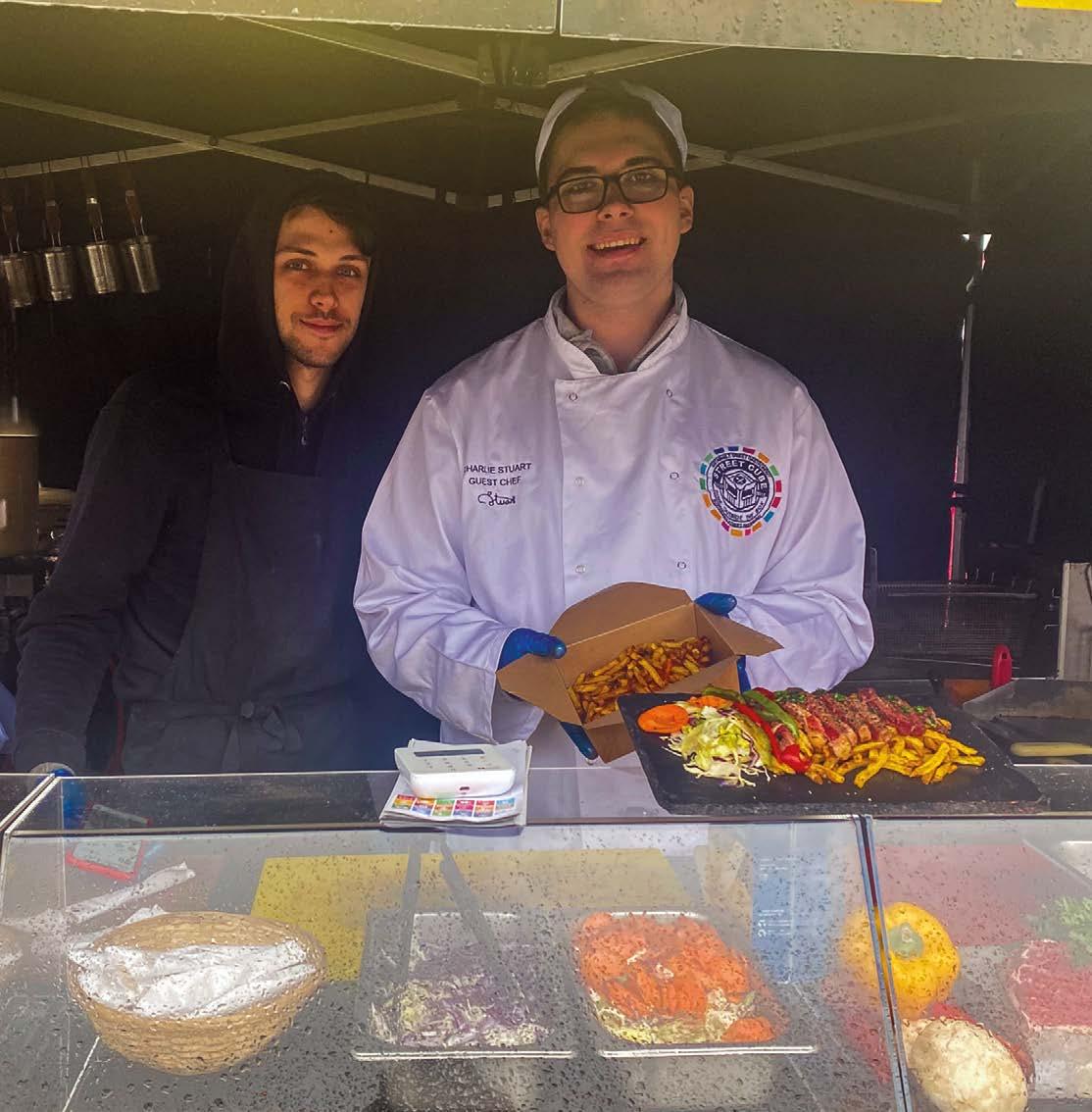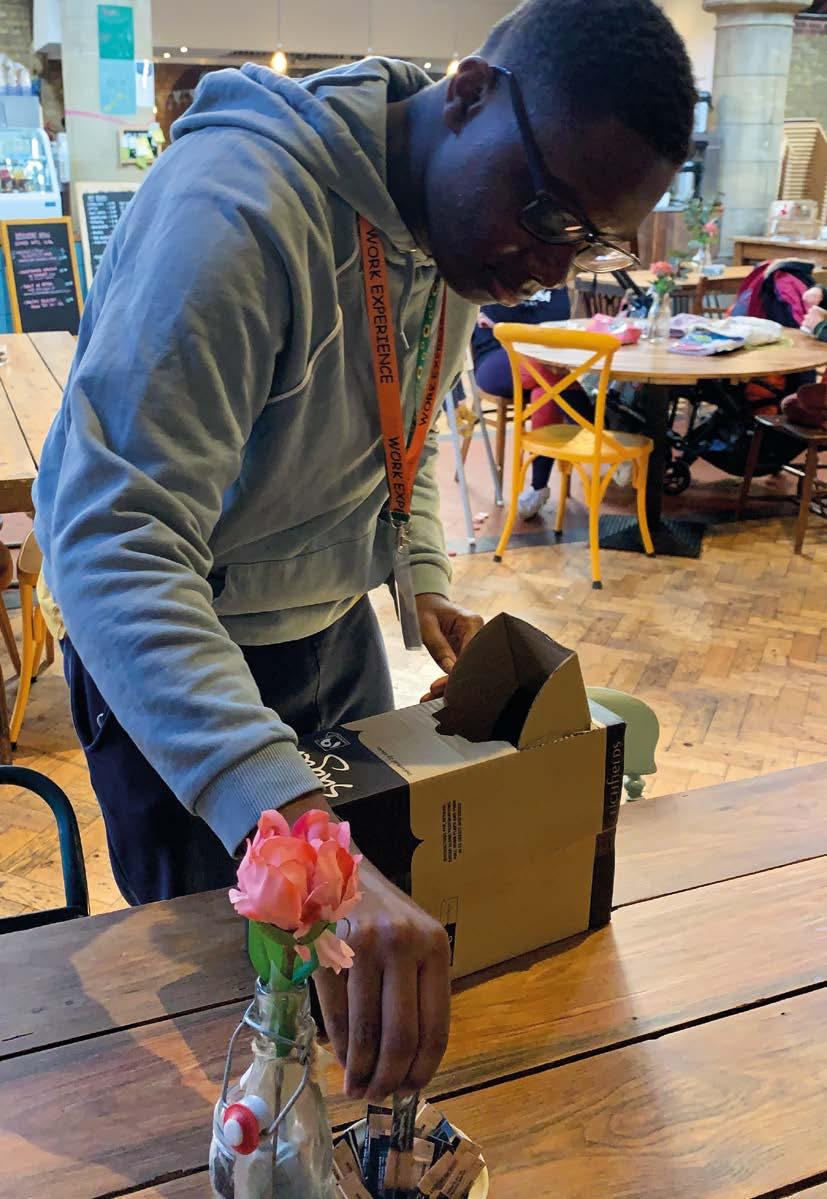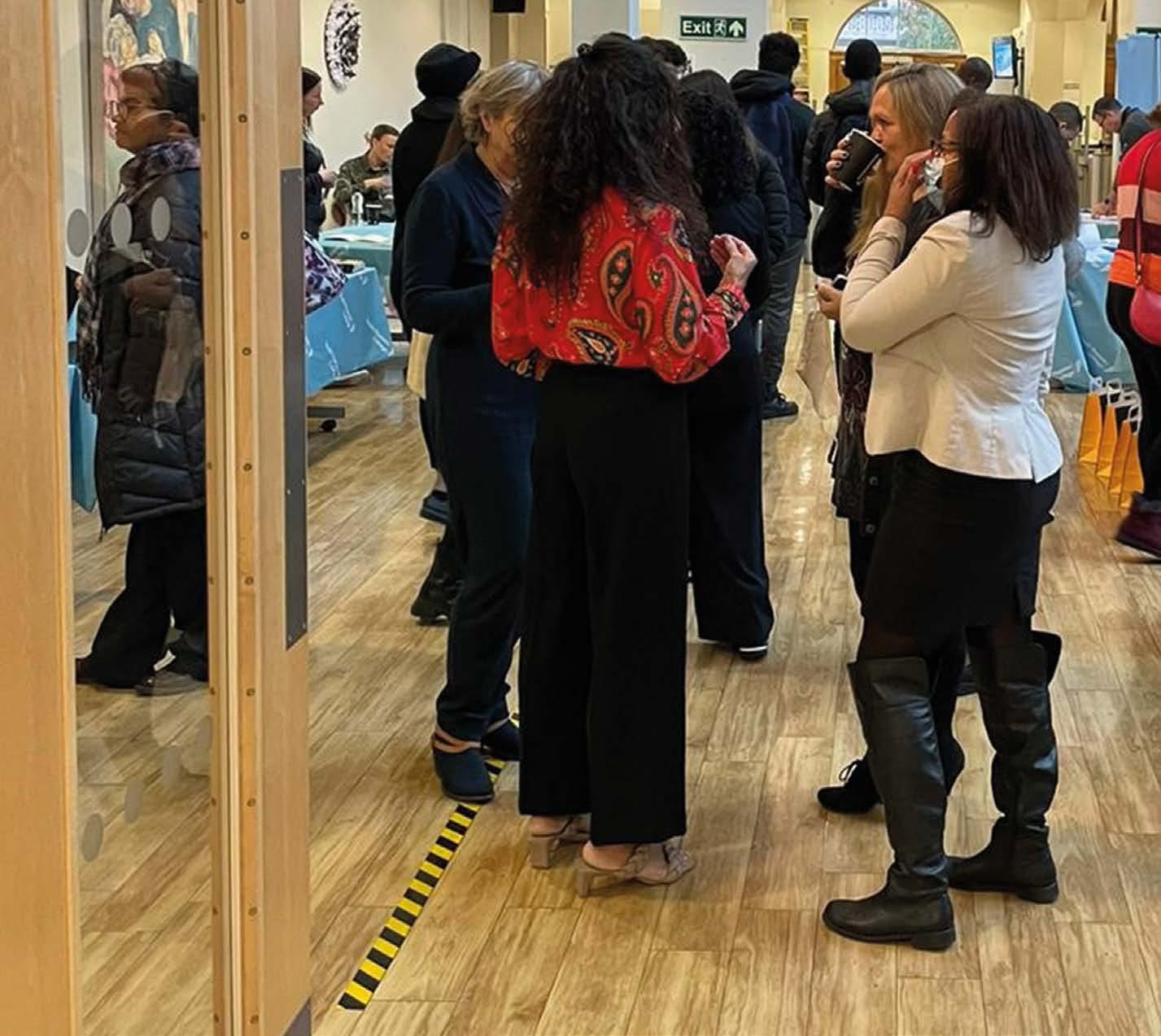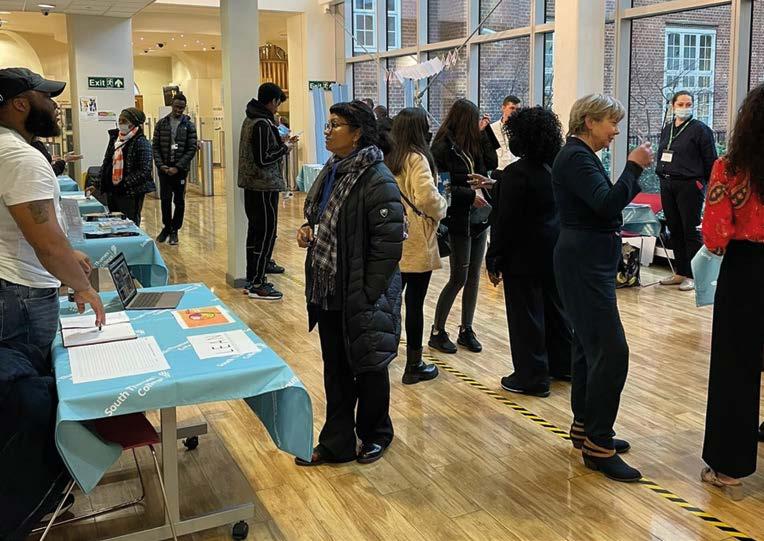
5 minute read
Skills
Fighting for equality in the workplace:
BeyondAutism’s
employability toolkit BeyondAutism Post-19 student working at the StreetCube in Southside Shopping Centre, Wandsworth
By EMILY ROSS, specialist vocational advisor, BeyondAutism
BeyondAutism Sixth Form student helping out at a local Church café in Wandsworth

Everyone deserves the opportunity to access meaningful employment. Yet for people with a disability, finding jobs can be challenging.
In 2020, the Office for National Statistics stated that just “52.1% of disabled people aged 16 to 64 years were employed”. For autistic adults that number drops to 21.7%. Once someone with autism gets a job, they face more challenges to stay in work. This is unacceptable and we need to see it change. At BeyondAutism we’re passionate about increasing employability. We want to see more autistic people with the skills and confidence to enter the workplace. At the same time, we want employers to feel confident in supporting people with autism at work. When we talk about employment we mean it in the broadest sense of the word, including work placements, internships, volunteering and meaningful activity. In September, we launched a free employability toolkit as part of a wider employability project started in 2020 thanks to a grant from City Bridge Trust, the City of London Corporation’s charity funder.The toolkit is designed to help employers feel confident in supporting autistic employees throughout the application process and in the work environment. It includes a range of resources for autistic people, from support on applying for jobs to tools to help their performance in the workplace. Low employment numbers for autistic people are in part down to a lack of understanding from employers. Our toolkit provides detailed information about autism, behaviour, communication and sensory needs whilst giving key tips and ideas for how to support an individual’s needs in the workplace. The resource also includes a personalised vocational profile and assessments to help employers support their employees’ development. The toolkit was written by experts in the fields of autism and employment, with input from speech and language therapists, occupational therapists, behaviour analysists and vocational specialists. We also worked with our learners and interns, creating solutions which work for them. This multidisciplinary approach ensures that the full needs of individuals are covered.
It’s time for society to become more inclusive. Diversity in a workplace cannot truly exist unless the environment is inclusive. Embracing inclusivity can bring benefits to an employer far beyond simply a match of skills to need. According to the charity Mencap, employing those with a disability or additional needs can help to increase staff morale, positively contributing to the work output of an organisation. Getting more people into paid employment is a boost for the economy – something we need to consider even more as we start the journey of recovery from the impacts of COVID-19. Our toolkit aims to equalize the employment experience for everyone by promoting inclusivity and positive attitudes towards autistic people in the workplace. Every step taken is helping to break the stigma and stereotype of disability, and break the cycle of prejudice experienced by so many. Will you take your first step today and download our toolkit to share within your organisation and your wider network? Why not also enrol in our free employability training: all about autism and how to create an inclusive working environment?
How can our Business Partnership Team
support your Business?

These are exciting times for the Business Partnership Team here at South Thames Colleges Group (STCG) with so many projects underway with our community partners.


Over the last year we have been building upon
existing relationships and we are working with a large number of new partners in the region to support skills and employment across South West London. We have applied for and won a number of grants from the Greater London Authority and Department for Education to support collaboration, education, training, and employability, including funding to support digital skills in the region.
We also recently won a bid to support Higher Technical qualifications in Construction and are working with construction companies in the area to promote these two qualifications in The Built Environment and Site Management. STCG is a key partner in “Constructing London”, the Mayor’s Construction Academy in South West London for Construction and we also work with “Building Heroes”, a charity which provides skills training for military veterans by providing a Construction multi-skills course.
The team are working closely with the All-England Lawn Tennis Club to support them in recruiting and training 1500 adults to work at the two-week Wimbledon Championships in a variety of roles in July 2022. In line with their guidance, we are aiming to recruit locally which is such a wonderful opportunity for adults across South West London.
Along with the many organisational partners we work with the local DWPs, Work Match, the local council, and Chamber of Commerce on a range of opportunities and are currently focusing on supporting training and recruitment for the hospitality industry across the borough, including the Battersea Power Station development and are holding Job Fairs across South Thames Colleges Groups’ campuses to support local and regional employers.
Finally, but not least we provide training for the Kickstart programmes at our South Thames College site, as well as having a number of Apprenticeships across the Group.


Please contact us at: Business@stcg.ac.uk if you are interested in finding out how the Business Partnerships Team can work with you and your business.











